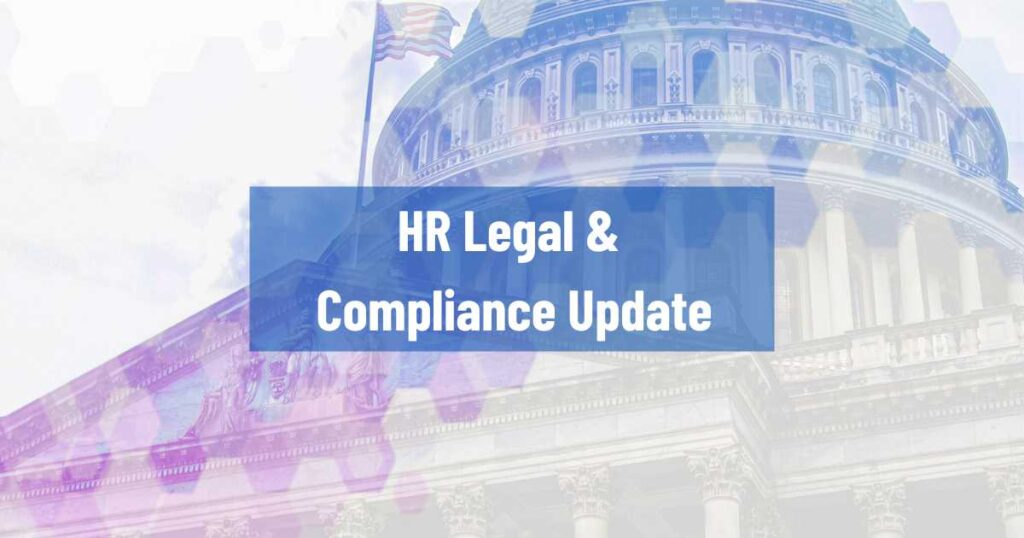The IRS recently released Notice 2026-5, which provides guidance and answers to common questions related to the expanded availability of health savings accounts (“HSA”) under the Reconciliation Act (previously named the One Big Beautiful Bill Act) passed into law earlier this year.
Background on Qualified HDHPs and HSA Eligibility
To be eligible to contribute to an HSA an individual must be enrolled in a qualified high deductible health plan (“HDHP”) and not have any disqualifying coverage. To be a qualified HDHP, the HDHP must meet certain minimum deductible and maximum out of pocket limits and, with limited exceptions, among other things, pursuant to §223(c)(2)(A), cannot provide benefits for any year until the minimum annual deductible for that year is satisfied.
One exception or safe harbor to the requirements under §223(c)(2)(A), is for the receipt of preventive care without first meeting the applicable minimum deductible. In addition, due to the COVID-19 pandemic, there was short-term relief under the CARES Act, which was extended by subsequent legislation, which allowed HDHPs to provide first-dollar coverage of telehealth and other remote care services prior to satisfying the HDHP deductible (and regardless of whether such services were preventive services) while maintaining HSA eligibility.
The Reconciliation Act
The Reconciliation Act further expanded HSA eligibility in several ways. First, the Reconciliation Act resurrected and made permanent the pandemic-related relief previously provided under the CARES Act, which was extended by the CAA 2022 and CAA 2023, and allows HDHPs to provide first-dollar coverage of telehealth and other remote care services prior to satisfying the HDHP deductible (and regardless of whether such services were preventive services) while maintaining HSA eligibility effective for plan years beginning after December 31, 2024.
Further, the Reconciliation Act resolved the unsettled question relating to the viability of HSA coverage for individuals with a direct primary care service arrangement (i.e., a contract between an individual and one or more primary care physicians to receive certain medical care in exchange for a fixed periodic fee). Beginning January 1, 2026, a direct primary care service arrangement is not considered disqualifying coverage (and therefore will not preclude an employee from qualifying for HSA coverage), as long as the fixed periodic fee for the direct primary care service arrangement is no more than $150 per month for the individual, indexed for inflation (or $300 per month if the arrangement covers more than one individual, indexed for inflation). In addition to satisfying this dollar limit, the direct primary care service arrangement must not include coverage for: procedures that require the use of general anesthesia, prescription drugs (other than vaccines), or laboratory services not typically administered in an ambulatory primary care setting. Finally, the Reconciliation Act confirms that the fixed periodic fees payable for the direct primary care service arrangement are qualified medical expenses that may be paid on a tax-free basis from the individual’s HSA.
Finally, beginning January 1, 2026, the Reconciliation Act provides that all bronze and catastrophic level plans available on the individual market through the Exchange will be treated as HDHPs – and will, therefore, be HSA-compatible – even if those plans do not otherwise meet the standard HDHP requirements (e.g., by providing pre-deductible coverage of non-preventive services, failing to conform to out-of-pocket maximums, etc.).
Notice 2026-05 Guidance
Notice 2026-05 provides 20 FAQs aimed at guiding individuals and/or employers on how to administer these new requirements in compliance with the applicable laws and regulations. The FAQs are summarized below:
Telehealth and Remote Care Services (FAQs 1-3)
The IRS confirmed that employees who contributed to their HSA while receiving telehealth and other remote care services as first dollar coverage (i.e., without having to satisfy the applicable deductible) during the gap in time between the expiration of the prior, extended COVID relief and the time the Reconciliation Act passed are otherwise grandfathered into the safe harbor for the entire 2025 plan year as long as the plan is a qualified HDHP in 2025. Further the IRS clarified that the items or services that qualify for telehealth and other remote care services are those listed on the list of telehealth services payable by Medicare (published annually by HHS) pursuant to §1834(m)(4)(F) of the Social Security Act (“SSA”), which is a list of codes identifying the types of health care services Medicare enrollees can receive remotely. There are currently more than 250 codes, and the agencies are advising that these same codes should be used to identify appropriate telehealth and remote care services that can provide first dollar coverage without disrupting HSA eligibility. If the item or service is not includes on that list of codes, then a group health plan would have to follow guidance issued by HHS defining telehealth services for purpose of §1834(m) of the SSA and 42 CFR §410.78.
Finally, the IRS clarified that any in-person services, medical equipment, or prescription drugs supplied in conjunction with telehealth and other remote care services generally cannot be provided first dollar unless they themselves are treated as telehealth services under the above Medicare list of services or otherwise meeting HHS’ guidance defining telehealth services.
Bronze and Catastrophic Plans (FAQs 4-10)
The IRS clarified that bronze or catastrophic plans that are offered as individual coverage through the Marketplace or Exchange (even those that may have an actuarial equivalent in excess of 60% of the full actuarial value of the benefit provided under the plan) are not required to satisfy the minimum annual deductible requirement or maximum OOP limit requirements to be treated as qualified HDHPs. Moreover, if the employer offers an ICHRA or QSEHRA to assist employees with their premium costs for individual coverage, the ICHRA or QSEHRA will not be considered disqualifying coverage; however, the underlying individual coverage must be a qualified HDHP.
Finally, if the employee purchases an individual bronze or catastrophic plan outside of the Marketplace or Exchange, the plan will be treated as a qualified HDHP if the same plan is available through the Exchange or if it is not available in the Exchange or Marketplace but the individual would have no reason to believe it is not available on the Marketplace or Exchange. This even includes individual plans that don’t have the same cost-sharing reduction load (i.e., built in cost sharing reductions available for silver plans offered in the Exchange for individuals with household incomes between 100 – 250% of the FPL who are also eligible for a premium tax credit) as those offered in the Marketplace.
The FAQs clarify that bronze plans offered through the Small Business Health Options Program (“SHOP”) are not individual plans and, therefore, would not meet the criteria to automatically be treated as a qualified HDHP. Instead, it would have to meet the minimum annual deductible and maximum OOP expenses requirements to be treated as a qualified HDHP.
Finally, the FAQs provide that individual who receive medical services at an Indian Health Services (“IHS”) facility at any time in the three (3) months prior to enrolling in a bronze or catastrophic plan will not be considered eligible individuals who can contribute to an HSA; however, if they enrolled in a bronze plan variant with cost sharing reductions available to American Indians and Alask Natives which includes coverage for care received at certain IHS facilities under the terms of the plan, the fact that they received services from an IHS facility under the terms of that bronze plan in the prior three (3) months would not disqualify them from being HSA eligible individuals.
Direct Primary Care Service Arrangements (FAQs 11-20)
Per the FAQs, for Direct Primary Care Arrangements (DCPSAs) not to be considered disqualifying coverage, they cannot be treated as a health plan, which means the following conditions apply:
- Providers in the DPCSA can only be compensated through a fixed periodic fee for items and services provided (i.e., they cannot require a fixed periodic fee and bill separately for items and services, such as through insurance or otherwise).
- It is permissible for the providers who participate in the DCPSA to provide services to other patients who are not members of the DPCSA as long as those services for non-members are separately billed.
- The DPCSA’s aggregate fees must be fixed, periodic fees that do not exceed the monthly limit ($150 per month for a single individual or $300 if more than one individual is covered) for no more than a 12-month period.
- The DPSCA can only be an arrangement for primary care services to be eligible for the relief. If the DPCSA provides services beyond primary care and a member opts only to use primary care services, the DPCSA will disqualify the individual from HSA eligibility.
- An HDHP cannot pay fees for, or provide membership in, a DPCSA without a deductible or before the deductible has been met. Only those benefits allowed under §223(c)(2)(C)-(G) (such as primary care or telehealth) can be provided without a deductible or before the minimum deductible has been met. Thus, an individual’s DPCSA fixed period fee cannot exceed $150 per month for a single individual (or $300 if more than one individual is covered) for primary care benefits to avoid disqualifying employees from HSA eligibility. Moreover, the fixed periodic fee cannot be counted towards the HDHP deductible or OOP maximum as they are not items and services covered by a HDHP. The employer may pay the fees for the DPCSA directly (outside the HDHP) without disrupting employees’ HSA eligibility.
- The primary care services permitted for purposes of the DPCSA are limited, even when services are provided by a provider identified as a primary care provider under the SSA (§1833(x)(2)(A)). For example, while practitioners that provide anesthesia, prescription drugs other than vaccines, and lab services administered outside an ambulatory primary care setting are defined as primary care providers under the SSA, those services are not primary care services for purposes of the SSA and are expressly excluded under §223(c)(1(E)(iii).
In addition, with regard to HSA distributions, the FAQs clarify the following:
- The DPCSA monthly primary care fee payments by the employer are not reimbursable by the employee’s HSA and are not subject to salary reduction under a Section 125 plan. Rather they are medical care expenses excluded from the employees’ gross income under 106 of the Code.
- The fees for participating in the DPCSA may be reimbursed by the individual’s HSA before the coverage before the coverage period begins as follows: (1) the first day of each month of coverage on a pro rata basis, (2) the first day of the period of coverage, or (3) the date the fees are paid. As an example, the FAQs provide that an HSA may immediately reimburse a substantiated fee for a DPCSA that begins on January 1 of that enrollment year, even if the enrolled individuals paid the fee prior to the first day of the enrollment year.
- Per the FAQ, there is no specific limit on the amount of the fixed periodic fee for the DPCSA for purposes of determining whether a DPCSA that otherwise meets the elements under the exception is considered a health plan under section 223(c)(1)(E) (i.e., if the purpose of the DPCSA is for primary care services by primary care providers, the sole compensation for such services is a fixed periodic fee, and the care does not involved procedures requiring the use of anesthesia, prescription drugs other than vaccines, or lab services not typically administered in an ambulatory primary care setting). In other words, if the fixed periodic fees are in excess of the $150 monthly dollar limit for a single individual (or $300 if more than one individual is covered), then those fees may be reimbursed by an individual’s HSA as a medical care expense but the individual will be disqualified from eligibility for making HSA contributions while the individual is enrolled.
Takeaways for Employers
- Employers who continuously adopted the telehealth and other remote care services exception since the COVID relief was effective have been assured that their employees’ HSA eligibility is not in question; however, employers should ensure any telehealth or other remote care services offered first dollar are listed on the Medicare list of telehealth services or they may have to defend that the services otherwise fall under guidance issued by HHS defining telehealth services.
- Telehealth and other remote care services received prior to the applicable deductible being met should not include any in-person services, medical equipment, or prescription drugs supplied in conjunction with telehealth and other remote care services.
- The guidance makes it clear that an HDHP cannot contribute to or cover a DPCSA for employees without disrupting HSA eligibility; however, an employer may pay for the DPCSA outside of the HDHP and preserve employees’ HSA eligibility.
HSA eligibility for employees who have their own arrangements (such as a DPCSA or a bronze plan purchased in the individual market or Marketplace) is the responsibility of the employee, not the employer. However, we generally recommend the employer understand the impact of the Reconciliation Act’s changes and the FAQ guidance should they receive any questions, particularly those who offer an ICHRA or QSEHRA that may reimburse employees for premiums or other medical care expenses under their Marketplace bronze or catastrophic plan coverage.
About the Author. This alert was prepared for Tooher-Ferraris by Barrow Weatherhead Lent LLP, a national law firm with recognized experts on the Affordable Care Act. Contact Stacy Barrow or Nicole Quinn-Gato at sbarrow@marbarlaw.com or nquinngato@marbarlaw.com.
The information provided in this alert is not, is not intended to be, and shall not be construed to be, either the provision of legal advice or an offer to provide legal services, nor does it necessarily reflect the opinions of the agency, our lawyers, or our clients. This is not legal advice. No client-lawyer relationship between you and our lawyers is or may be created by your use of this information. Rather, the content is intended as a general overview of the subject matter covered. Tooher-Ferraris and Barrow Weatherhead Lent LLP are not obligated to provide updates on the information presented herein. Those reading this alert are encouraged to seek direct counsel on legal questions.
© 2025 Barrow Weatherhead Lent LLP. All Rights Reserved.









